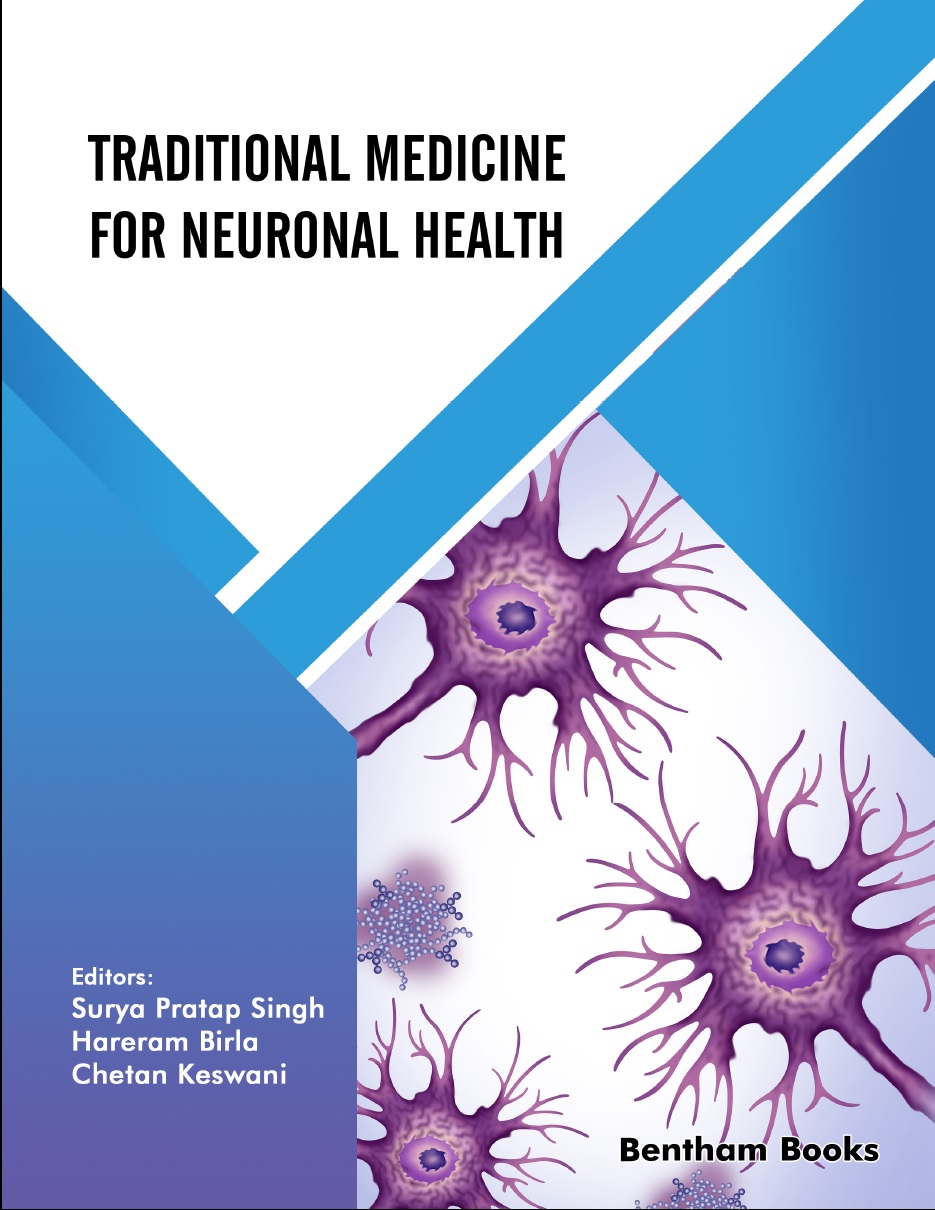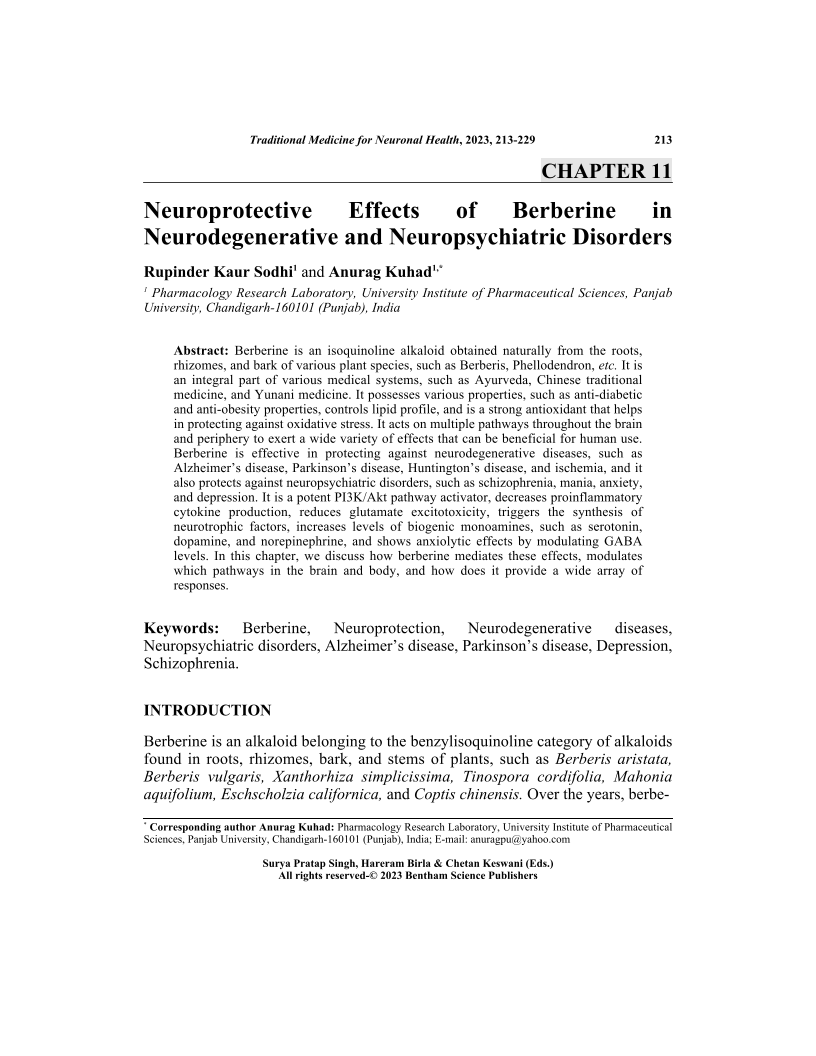Neuroprotective Effects of Berberine in Neurodegenerative and Neuropsychiatric Disorders

- Authors: Rupinder Kaur Sodhi1, Anurag Kuhad2
-
View Affiliations Hide Affiliations1 Pharmacology Research Laboratory, University Institute of Pharmaceutical Sciences, Panjab University, Chandigarh 160101 (Punjab), India 2 Pharmacology Research Laboratory, University Institute of Pharmaceutical Sciences, Panjab University, Chandigarh-160101 (Punjab), India
- Source: Traditional Medicine for Neuronal Health , pp 213-229
- Publication Date: March 2023
- Language: English
Neuroprotective Effects of Berberine in Neurodegenerative and Neuropsychiatric Disorders, Page 1 of 1
< Previous page | Next page > /docserver/preview/fulltext/9789815040197/chap11-1.gif
Berberine is an isoquinoline alkaloid obtained naturally from the roots, rhizomes, and bark of various plant species, such as Berberis, Phellodendron, etc. It is an integral part of various medical systems, such as Ayurveda, Chinese traditional medicine, and Yunani medicine. It possesses various properties, such as anti-diabetic and anti-obesity properties, controls lipid profile, and is a strong antioxidant that helps in protecting against oxidative stress. It acts on multiple pathways throughout the brain and periphery to exert a wide variety of effects that can be beneficial for human use. Berberine is effective in protecting against neurodegenerative diseases, such as Alzheimer’s disease, Parkinson’s disease, Huntington’s disease, and ischemia, and it also protects against neuropsychiatric disorders, such as schizophrenia, mania, anxiety, and depression. It is a potent PI3K/Akt pathway activator, decreases proinflammatory cytokine production, reduces glutamate excitotoxicity, triggers the synthesis of neurotrophic factors, increases levels of biogenic monoamines, such as serotonin, dopamine, and norepinephrine, and shows anxiolytic effects by modulating GABA levels. In this chapter, we discuss how berberine mediates these effects, modulates which pathways in the brain and body, and how does it provide a wide array of responses.
-
From This Site
/content/books/9789815040197.chap11dcterms_subject,pub_keyword-contentType:Journal -contentType:Figure -contentType:Table -contentType:SupplementaryData105

